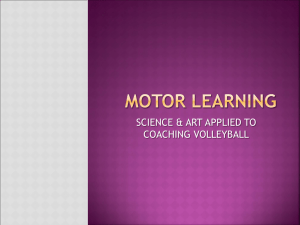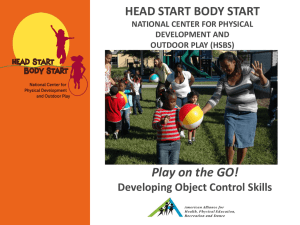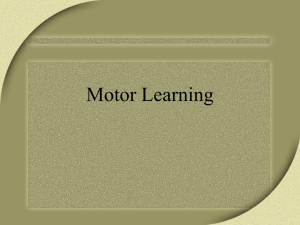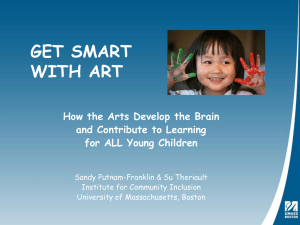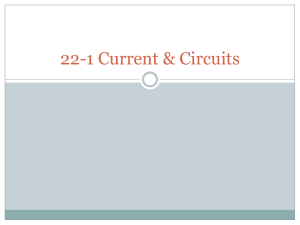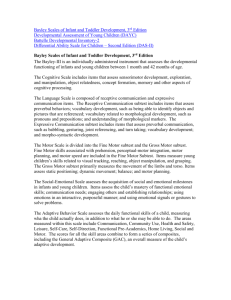BDI-2 Assessment Form: Child Development Inventory
advertisement
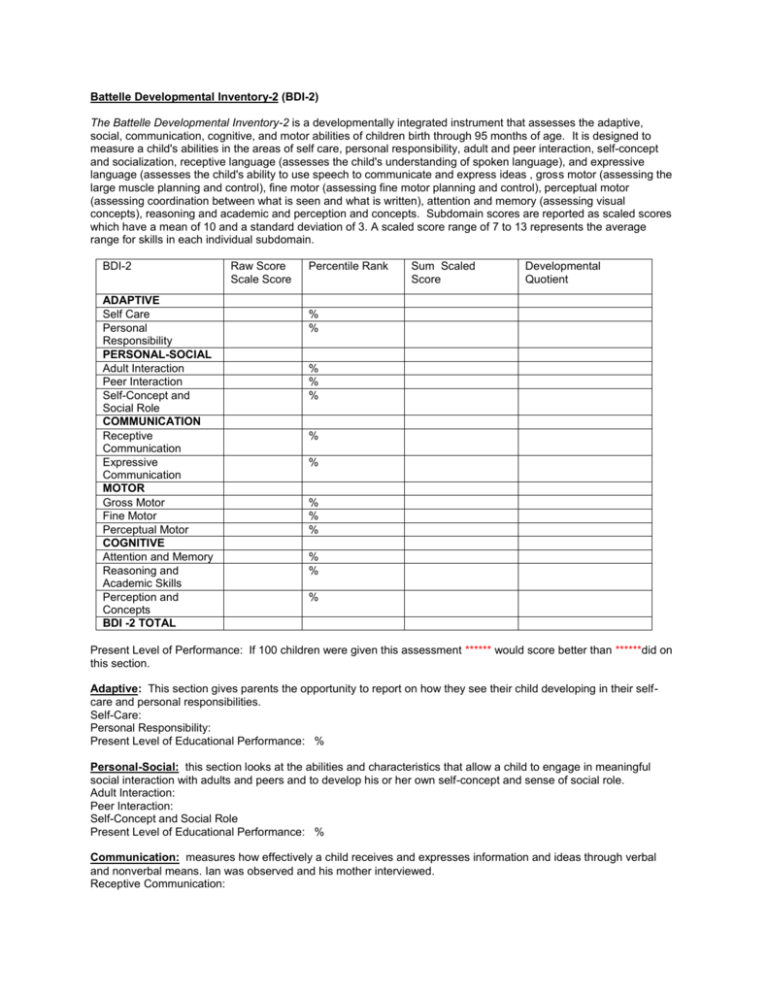
Battelle Developmental Inventory-2 (BDI-2) The Battelle Developmental Inventory-2 is a developmentally integrated instrument that assesses the adaptive, social, communication, cognitive, and motor abilities of children birth through 95 months of age. It is designed to measure a child's abilities in the areas of self care, personal responsibility, adult and peer interaction, self-concept and socialization, receptive language (assesses the child's understanding of spoken language), and expressive language (assesses the child's ability to use speech to communicate and express ideas , gross motor (assessing the large muscle planning and control), fine motor (assessing fine motor planning and control), perceptual motor (assessing coordination between what is seen and what is written), attention and memory (assessing visual concepts), reasoning and academic and perception and concepts. Subdomain scores are reported as scaled scores which have a mean of 10 and a standard deviation of 3. A scaled score range of 7 to 13 represents the average range for skills in each individual subdomain. BDI-2 ADAPTIVE Self Care Personal Responsibility PERSONAL-SOCIAL Adult Interaction Peer Interaction Self-Concept and Social Role COMMUNICATION Receptive Communication Expressive Communication MOTOR Gross Motor Fine Motor Perceptual Motor COGNITIVE Attention and Memory Reasoning and Academic Skills Perception and Concepts BDI -2 TOTAL Raw Score Scale Score Percentile Rank Sum Scaled Score Developmental Quotient % % % % % % % % % % % % % Present Level of Performance: If 100 children were given this assessment ****** would score better than ******did on this section. Adaptive: This section gives parents the opportunity to report on how they see their child developing in their selfcare and personal responsibilities. Self-Care: Personal Responsibility: Present Level of Educational Performance: % Personal-Social: this section looks at the abilities and characteristics that allow a child to engage in meaningful social interaction with adults and peers and to develop his or her own self-concept and sense of social role. Adult Interaction: Peer Interaction: Self-Concept and Social Role Present Level of Educational Performance: % Communication: measures how effectively a child receives and expresses information and ideas through verbal and nonverbal means. Ian was observed and his mother interviewed. Receptive Communication: Expressive Communication: Present Level of Educational Performance: % Motor: a child's ability to control and use the large and small muscles of the body. Gross Motor: Fine Motor: Perceptual Motor: Present Level of Educational Performance: % Cognitive: The cognitive milestones involve activities such as attending to, perceiving, and processing information; remembering; thinking; and knowing. Ian was observed and his mother interviewed. Attention & Memory: Reasoning & Academic: Perception and Concepts: Present Level of Educational Performance: %

